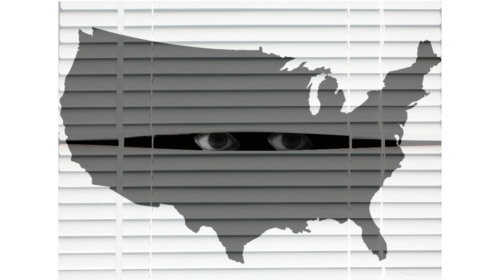
A commentator on my recent post about the DEA installing license plate scanners on the nation’s interstate highways asks, “If you aren't doing anything illegal why would you care if someone captures your license plate number?”
Another commentator countered: “If I'm not doing anything illegal, why do the police need to record my license plate number?”
It’s a great response. In essence, it points to our civilization’s core principle that the government is not supposed to look over our shoulder unless it has particularized suspicion that we are involved in wrongdoing.
But the original poster’s point is a frequent refrain: “Why should I care about surveillance if I have nothing to hide?” As a privacy advocate I have heard this question for many years, and over time developed my own list of answers, aided by the sharp thinking of others who have grappled with this question, such as Dan Solove and .
Here are the answers to this question that I have settled upon over time:
-
Some people do have something to hide, but not something that the government ought to gain the power to reveal. People hide many things from even their closest friends and family: the fact that they are gay, the fact that they are sick, the fact that they are pregnant, the fact that they are in love with someone else. Though your private life may be especially straightforward, that should not lead you to support policies that would intrude on the more complicated lives of others. There’s a reason we call it private life.
-
You may not have anything to hide, but the government may think you do. One word: errors. If we allow the government to start looking over our shoulders just in case we might be involved in wrongdoing—mistakes will be made. You may not think you have anything to hide, but still might end up in the crosshairs of a government investigation, or entered into some government database, or worse. The experience with terrorist watch lists over the past 10 years has shown that the government is highly prone to errors, and tends to be sloppily overinclusive in those it decides to flag as possibly dangerous.
-
Are you sure you have nothing to hide? As I said in this , there are a lot of laws on the books—a lot of very complicated laws on the books—and prosecutors and the police have a lot of discretion to interpret those laws. And if they decide to declare you public enemy #1, and they have the ability to go through your life with a fine-tooth comb because your privacy has been destroyed, they will find something you’ll wish you could hide. Why might the government go after you? The answers can involve muddy combinations of things such as abuse of power, mindless bureaucratic prosecutorial careerism, and political retaliation. On this point a attributed to Cardinal Richelieu is often invoked: “Give me six lines written by the hand of the most honest man, and I’ll find something in them to hang him by.”
-
Everybody hides many things even though they’re not wrong. The ultimate example is the fact that most people don’t want to be seen naked in public. Nudity also makes a good metaphor for a whole category of privacy concerns: just because we want to keep things private doesn’t mean we’ve done anything wrong. And, it can be hard to give rational reasons why we feel that way—even those of us who feel most comfortable with our bodies. True, some people may be perfectly happy posting nude pictures of themselves online, but other people do not like to show even a bare ankle—and they should have that right. In the same way, there may not be anything particularly embarrassing about other details of our lives—but they are our details. The list of all the groceries you have purchased in the past year may contain nothing damaging, but you might not want a stranger looking over that either, because of that same difficult-to-articulate feeling that it would just be, somehow, invasive, and none of their damned business. As Bruce Schneier aptly sums it up, “we do nothing wrong when we sing in the shower.”
-
You may not care about hiding it, but you may still be discriminated against because of it. As I discussed recently in this post about data mining, people are often denied benefits or given worse deals because some company decides that some behavior—entirely innocent and legal—might suggest you are a poor risk. For example, credit card companies sometimes based on the repayment history of the other customers of stores where a person shops.
-
Privacy is about much broader values than just “hiding things.” Although many people will want more specific answers to the question such as the above, ultimately the fullest retort to the “nothing to hide” impulse is a richer philosophical defense of privacy that articulates its importance to human life—the human need for a refuge from the eye of the community, and from the self-monitoring that living with others entails; the need for space in which to play and to try out new ideas, identities, and behaviors, without lasting consequences; and the importance of maintaining the balance of power between individuals and the state.
Learn more about civil liberties in the digital age: Sign up for breaking news alerts, , and .

